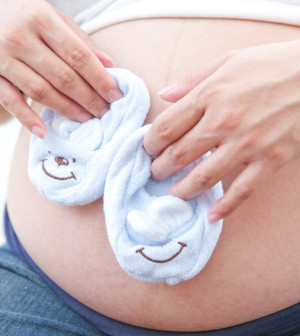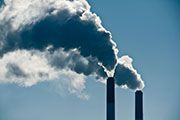- 8 Ways to Increase Dopamine Naturally
- 7 Best Breads for Maintaining Stable Blood Sugar
- Gelatin vs. Collagen: Which is Best for Skin, Nails, and Joints?
- The Long-Term Effects of Daily Turmeric Supplements on Liver Health
- Could Your Grocery Store Meat Be Causing Recurring UTIs?
- Are You Making This Expensive Thermostat Error This Winter?
- Recognizing the Signs of Hypothyroidism
- 10 Strategies to Overcome Insomnia
- Could Artificial Sweeteners Be Aging the Brain Faster?
- Techniques for Soothing Your Nervous System
Beijing Olympics Study Hints at Smog’s Impact on Birth Weights


Babies born around the 2008 Beijing Olympics tended to weigh more at birth than those born in the years before and after the games, a new study finds.
Why? Possibly because air pollution levels were aggressively reduced by the Chinese government during the Olympics, the researchers suggested.
“The results of this study demonstrate a clear association between changes in air pollutant concentrations and birth weight,” study author David Rich, an epidemiologist with the University of Rochester Medical Center (URMC) in New York, said in a university news release.
“These findings not only illustrate one of the many significant health consequences of pollution, but also demonstrate that this phenomenon can be reversed,” he added.
However, the study was only designed to show an association between birth weights and air pollution; it wasn’t able to prove a cause-and-effect between the two.
The study was published April 28 in the journal Environmental Health Perspectives.
Leading up to the 2008 Beijing Olympics and Paralympics, the Chinese government implemented a series of aggressive steps to improve the city’s very poor air quality. These steps included restricting the use of cars and trucks, closing factories, stalling construction projects and even “seeding” clouds in an attempt to trigger rainfall, the researchers said.
These measures were enforced right before and during the Olympics, but were relaxed right after the games ended. While they were in effect, however, they produced a dramatic reduction in concentrations of particulate and gaseous air pollution. For example, carbon monoxide levels dropped by 48 percent when the restrictions were in place, according to the researchers.
The study authors looked at data from more than 83,000 full-term births in four urban areas of Beijing. The researchers compared the birth weights of babies born to mothers whose eighth month of pregnancy occurred during the Olympics to babies from the year before or after the Olympics.
Babies born around the Olympics were about eight ounces heavier than those born one year earlier or one year later, according to the study.
The eighth month of pregnancy is a critical time for babies’ growth and development, the researchers noted. During this time, air pollution could lead to inflammation among mothers, altered function of the placenta and fewer nutrients reaching unborn babies, according to the researchers. All of these things can affect a baby’s growth.
“While Beijing’s pollution is particularly noteworthy, many of the world’s other cities face similar air quality problems,” study co-author Junfeng Zhang, with Duke Global Health Institute and Duke Kunshan University, said in the news release. “This study shows that pollution controls — even short-term ones — can have positive public health benefits.”
More information
The U.S. Environmental Protection Agency provides more information on the health effects of pollution.
Source: HealthDay
Copyright © 2026 HealthDay. All rights reserved.










